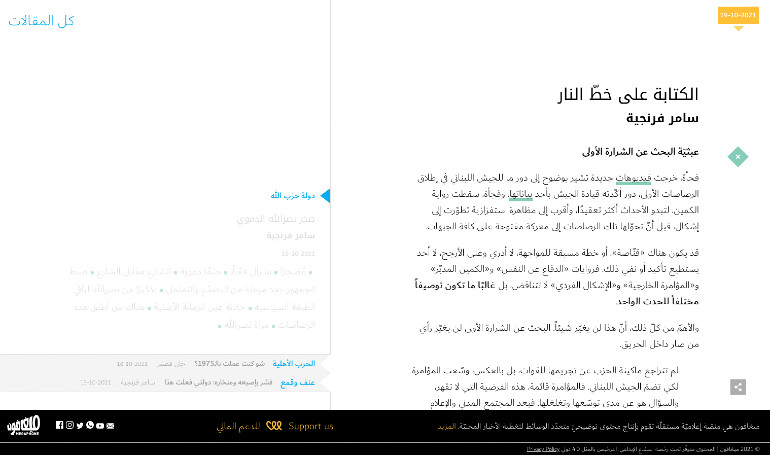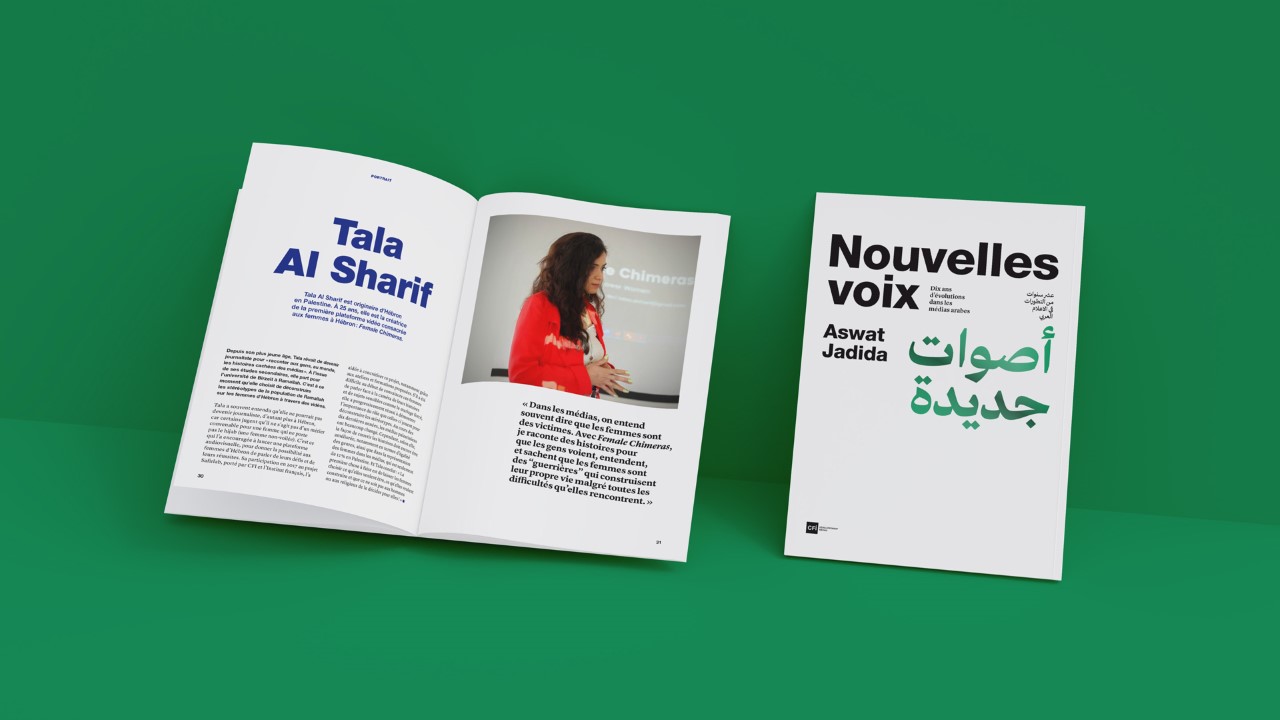
Mégaphone: an alternative Lebanese media outlet at the heart of the 2019 revolution
Related project
D-JilCreated and run by young people on social media, Mégaphone is a selfproclaimed independent media outlet, critical of all power structures.
The Mégaphone project came into being in 2017.
The idea was to launch an innovative format, attuned to social networks and the way young people consume media, with an intransigent editorial line, critical of the various power structures. To some extent, the story of this project is the story of all the sudden political developments we experienced, in the sense that the project set off in one direction and evolved after 17 OctoberThe outlet targets young people, to compensate for the limited media offer catering to them. But it also targets more marginalised people, such as refugees, migrant workers and activists of all persuasions who do not get information from the mainstream media.
As one of its founders, Jean Kassir, said: There were about ten of us at the start who’d known each other since university. We were part of a collective and we began getting involved in politics through student activism. We took part in all the main stages of the protest movement in Lebanon from 2011, through to 2015 with the waste crisis and then, of course, the uprising on 17 October 2019.
Prior to 2019, Mégaphone had already gained credibility in student circles and among activists in Beirut. Large swathes of the population started taking an interest in politics, driving demand for this type of video.
The foundations had therefore been laid ahead of the 17 October uprising. Mégaphone’s role scaled up as it became one of the main news sources during the uprising. In addition to daily coverage out in the field, this media outlet acted as a form of citizens’ watch, flagging up the various ploys used by banks and the government. It also dissected politico-speak, deconstructing the official rhetoric, in particular with regard to the economic system.
Several short videos and a 20-minute video were produced as part of the D-Jil project, to strengthen media outlets targeting young people in the Arab world. This project was funded by the European Union and implemented by CFI.
The purpose of these videos was to analyse the mechanisms of the economic model used over the last 30 years, which was responsible for the current collapse. In Kassir’s view, it took time for Lebanon to gear up for its own media revolution: It was late coming but I can now say it’s well under way and these players are fulfilling an essential role in Lebanese broadcasting. Compared with other countries in the region, there were mostly blogs in 2011 and then, in 2015, activist presence on social media grew in size and significance.
But it was really in 2019 that several alternative news platforms came into being.
Through the testimonies, portraits of journalists and the human adventures of our series Aswat Jadida ("New Voices", in Arabic), discover ten years of support for media development in the Arab world.




